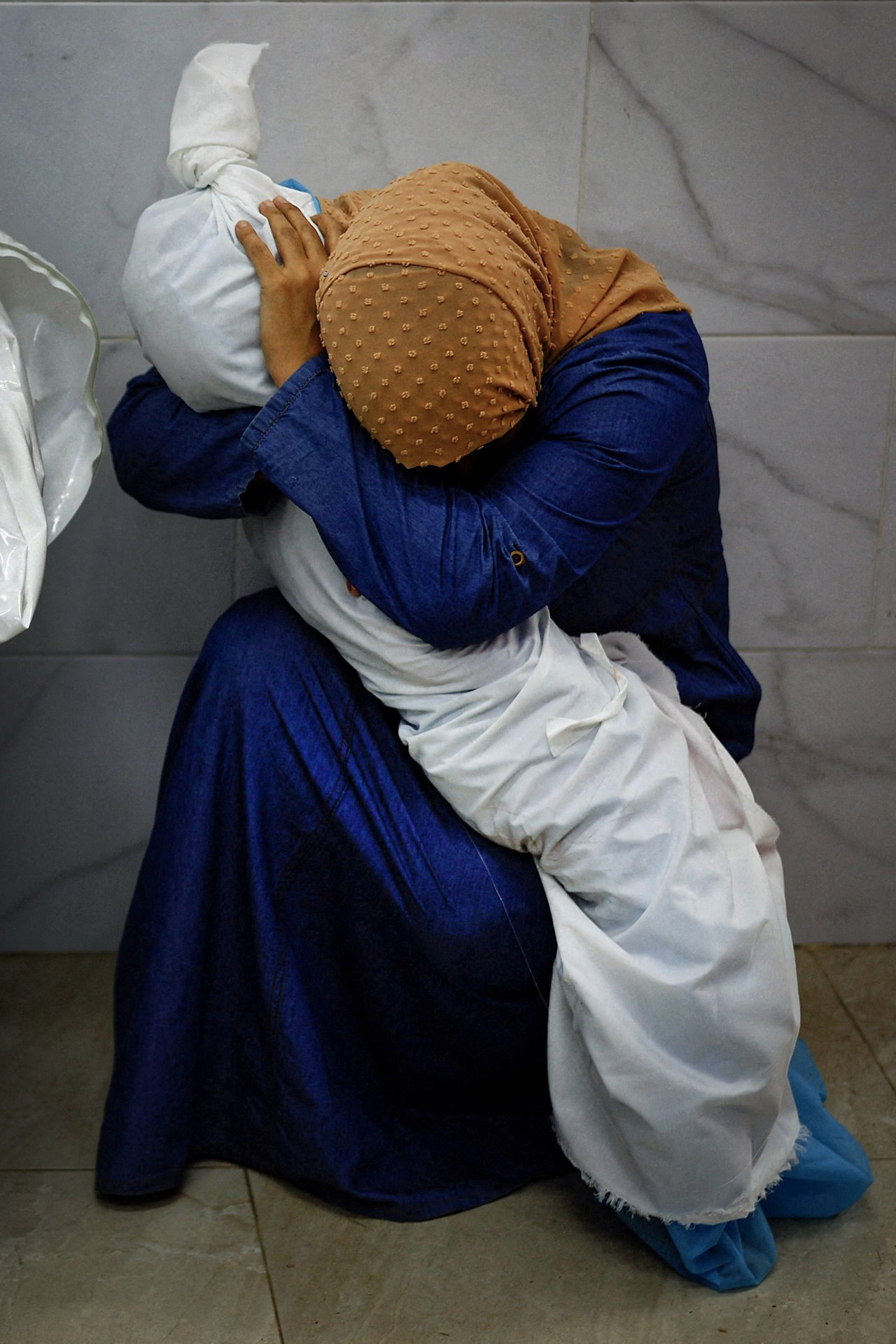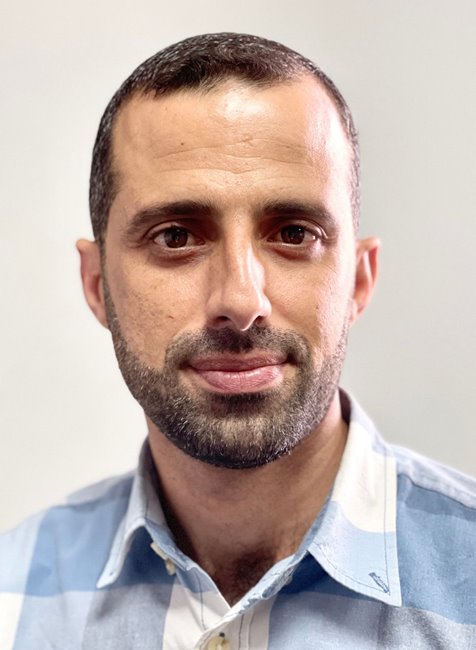Inas Abu Maamar (36) cradles the body of her niece Saly (5) who was killed, along with her mother and sister, when an Israeli missile struck their home, in Khan Younis, Gaza.
The photographer describes this photo, taken just days after his own wife gave birth, as a “powerful and sad moment that sums up the broader sense of what was happening in the Gaza Strip”. He found Inas squatting on the ground, embracing the child, at the Nasser Hospital morgue, where residents were going to search for missing relatives. Inas had raced to the family home when she heard that it had been hit, and then on to the morgue.
The 75-year-long Israel/Palestine conflict escalated on 7 October 2023, when Hamas-led fighters launched attacks on multiple locations in southern Israel, killing around 1,200 people, wounding more than 2,500 and abducting around 250 as hostages. In response, Israel launched airstrikes and formally declared war on Hamas the following day, mobilizing army reservists and launching an offensive on Gaza.
At the outset of the war, Israel instructed Gazans to evacuate to the area south of the Wadi Gaza seasonal river for their safety. Yet, according to reports, Israeli airstrikes heavily bombarded Khan Younis (21.8 km south of Wadi Gaza) from mid-October. Many of those killed were families who had left Gaza City days earlier.
By mid-March 2024 (the time of writing), Israel's attacks on the occupied Palestinian territories had killed over 30,000 people and injured more than 70,000. Palestinian women and children accounted for more than two thirds of the death toll, according to the Office of the United Nations High Commissioner for Human Rights (OHCHR). The International Court of Justice is considering a case brought by South Africa alleging that Israel is committing genocide against Palestinians in the Gaza Strip.

